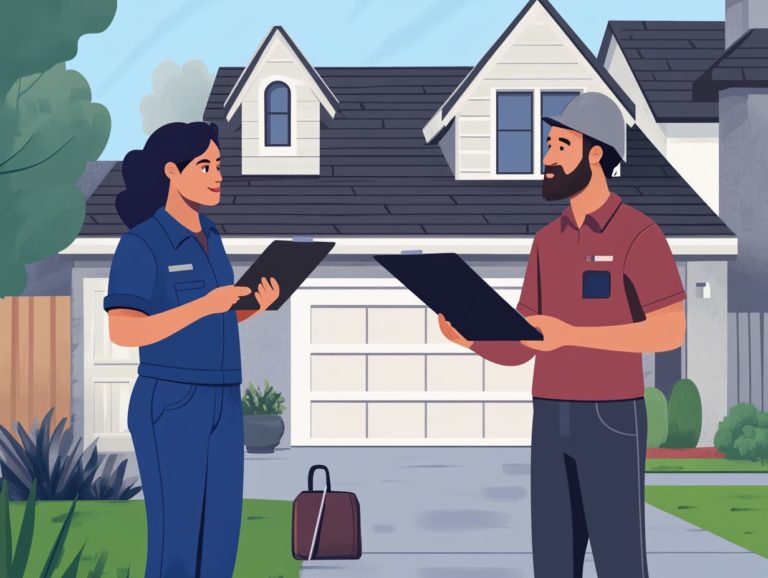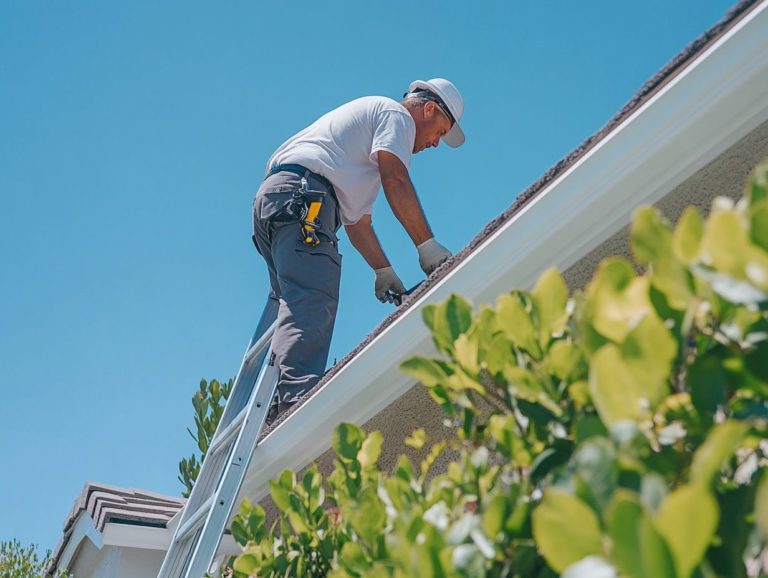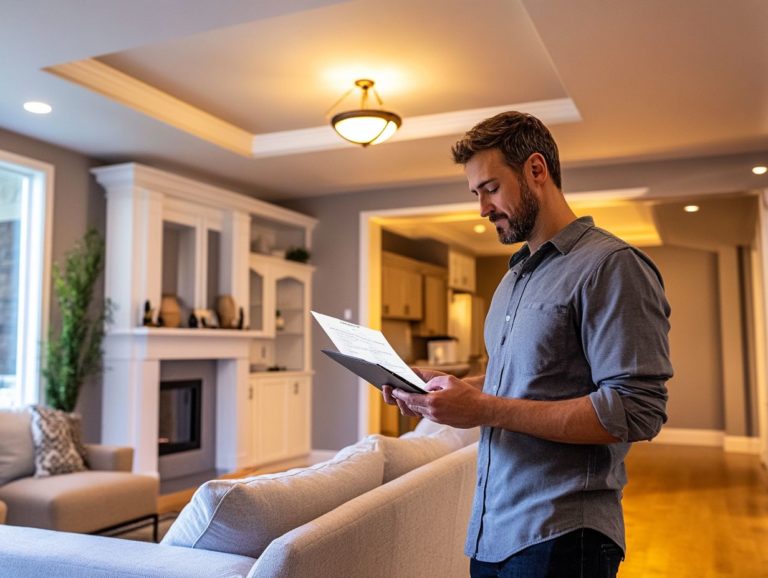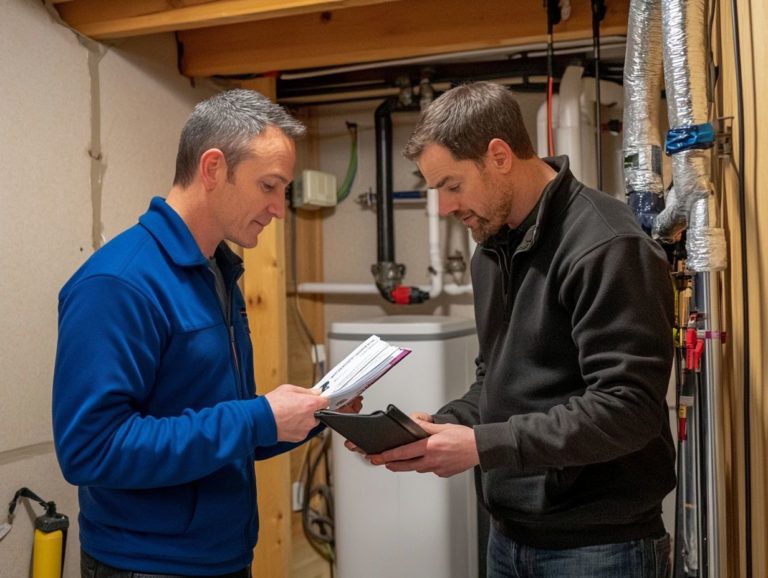Common Home Inspection Issues in New Builds
When you re purchasing a new build, a home inspection becomes absolutely essential to guarantee that everything adheres to safety and quality standards.
Even though these homes are fresh off the assembly line, they can still conceal hidden issues, ranging from structural concerns to electrical and plumbing problems.
By understanding what to expect during an inspection, you can pinpoint potential red flags and tackle them before they escalate into costly repairs.
This article delves into common issues found in new builds, offers insights on how to resolve them, and provides tips for preventing future problems.
Prepare to navigate the intricacies of ensuring your new home is genuinely ready for you!
Contents
- Key Takeaways:
- Understanding Home Inspections for New Builds
- Common Issues Found in New Builds
- Addressing Inspection Findings
- Preventing Issues in New Builds
- Frequently Asked Questions
- What are some common home inspection issues in new builds?
- How can building code violations affect a new build?
- What are some potential structural defects to look out for in a new build?
- What should I do if my home inspection reveals poor construction quality?
- How can electrical and plumbing issues be identified during a home inspection?
- Why is proper insulation important in a new build?
Key Takeaways:
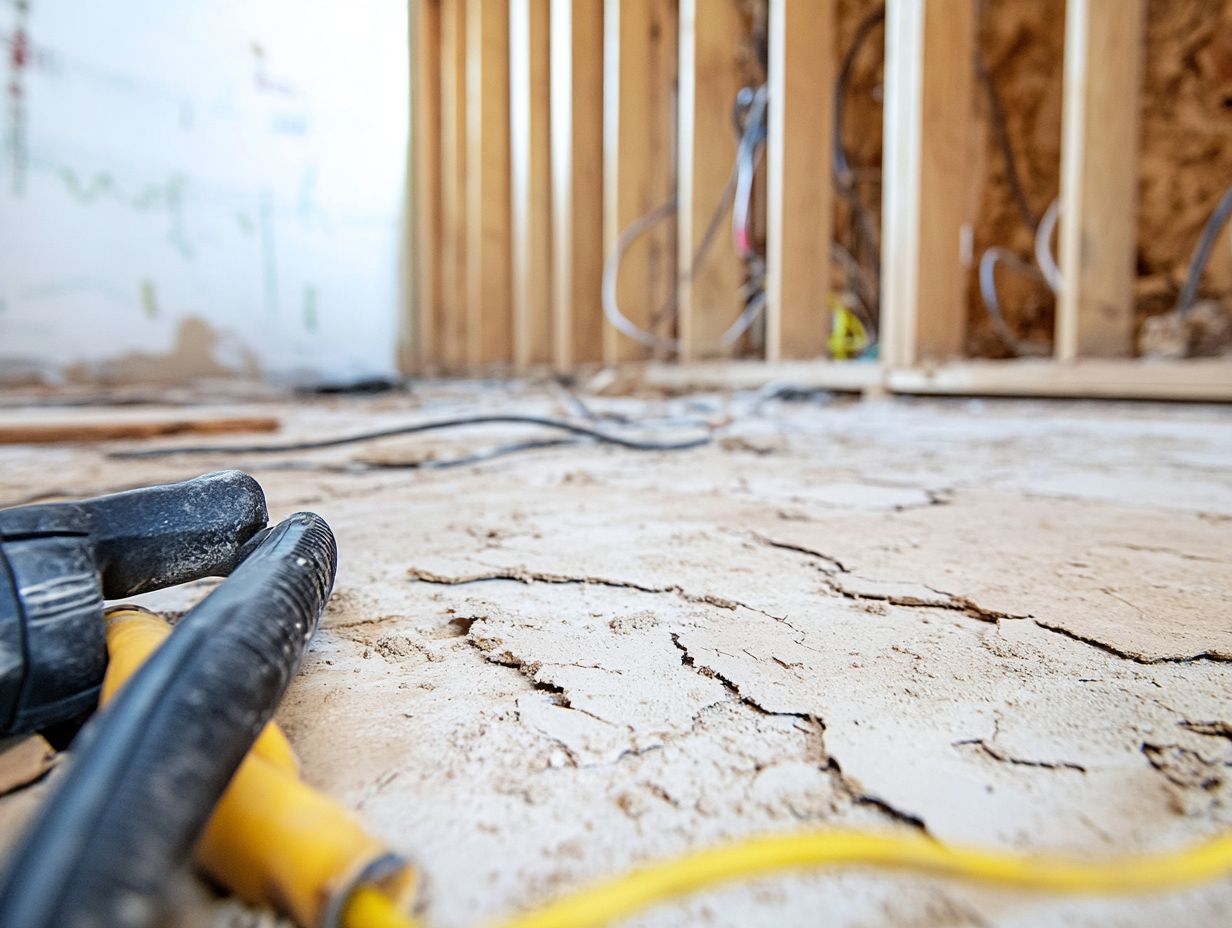
- Home inspections for new builds are crucial for identifying potential issues and ensuring the quality of the home.
- Common problems found in new builds include structural, electrical, plumbing issues, poor workmanship, and the use of subpar materials.
- To prevent issues in new builds, choose a reliable builder and conduct regular inspections during construction.
Understanding Home Inspections for New Builds
Understanding home inspections for new builds is essential for you as a prospective home buyer. It s a vital step in ensuring your investment is solid and free from hidden defects.
Inspections play a key role in the research process, uncovering a range of issues that might stem from construction defects, maintenance challenges, or even safety concerns.
Hiring a qualified home inspector helps you understand the overall condition of the home’s components, giving you the power to make informed decisions about your new property and sidestep unexpected repair costs.
This proactive approach not only protects your investment but also elevates your overall experience of homeownership.
What to Expect and Why They Are Important
When you undergo a home inspection for a new build, expect a comprehensive evaluation of the property that uncovers maintenance issues and highlights the most common findings in home inspections, as well as potential safety concerns.
This crucial stage in your home-buying journey is your chance to assess the condition of various components, from the foundation to the roof and everything in between.
Experienced inspectors will meticulously scrutinize the electrical systems, plumbing, and structural integrity, ensuring that nothing critical slips through the cracks.
Identifying issues early helps you understand what needs attention, potentially saving you significant costs down the line.
Knowing the property’s strengths and weaknesses gives you the power to negotiate effectively, transforming the inspection from a mere formality into a vital step in securing a safe and sound investment.
Common Issues Found in New Builds
In the realm of new builds, common issues can vary considerably, but a thorough home inspection typically reveals substantial concerns.
You might discover significant plumbing problems, electrical malfunctions, deficiencies in the HVAC system, and even structural or foundation issues that could jeopardize the integrity of your property.
Engaging in a detailed inspection is essential to ensure you re fully aware of any potential pitfalls before making a commitment.
Structural Issues
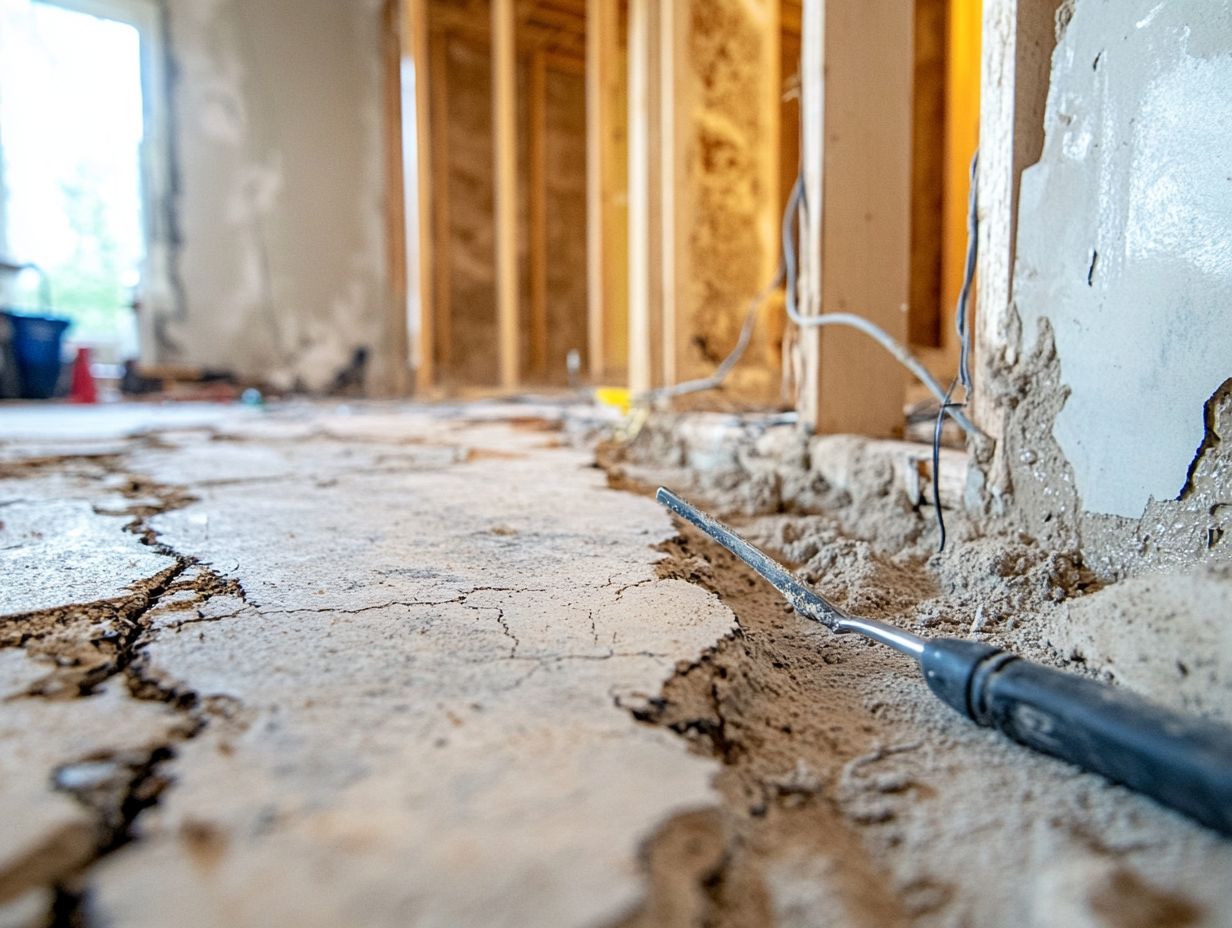
Structural issues in new builds can reveal themselves as foundational cracks, misaligned walls, or sagging roofs, all of which demand your immediate attention.
These problems can spiral into much larger concerns if not addressed swiftly, significantly affecting both the safety and longevity of your home.
Home inspectors are essential in pinpointing these structural defects, diligently searching for specific signs of compromise, such as uneven settling or water leaks, which could jeopardize the integrity of your foundation.
If you let even minor issues slide, they can snowball into costly repairs, ultimately diminishing your property’s value.
The inspection process includes a meticulous assessment of both visible components and hidden areas, effectively evaluating potential hazards.
By grasping these structural concerns, you can take proactive measures and implement recommended repair solutions, ensuring your home remains a safe and sound sanctuary.
Electrical and Plumbing Problems
Electrical and plumbing issues are common in new builds. You might encounter problems like faulty wiring or poor drainage systems.
These issues show up as flickering lights, leaking pipes, or ungrounded outlets. If you ignore them, they can lead to serious hazards.
A trained professional will evaluate these systems during inspections. They look for signs of wear, code violations, or potential dangers.
Inspectors check electrical panels, circuit breakers, and plumbing fixtures. They help identify risks and suggest repairs to keep your home safe.
Quality of Materials and Workmanship
The materials and workmanship in new builds are crucial for your home’s longevity and safety. Choosing cheaper options can lead to issues like roof problems.
If you prioritize low-cost materials, you risk creating structural deficiencies. These issues can escalate into costly repairs.
Poor installation can worsen defects, leading to bigger challenges down the road. Quality materials and skilled labor are key for solid construction.
This knowledge ensures a safe and lasting home for you and your loved ones.
Addressing Inspection Findings
Acting quickly on inspection findings is important for home buyers. This helps you avoid costly repairs and ensures a safe home.
Options for Resolving Issues
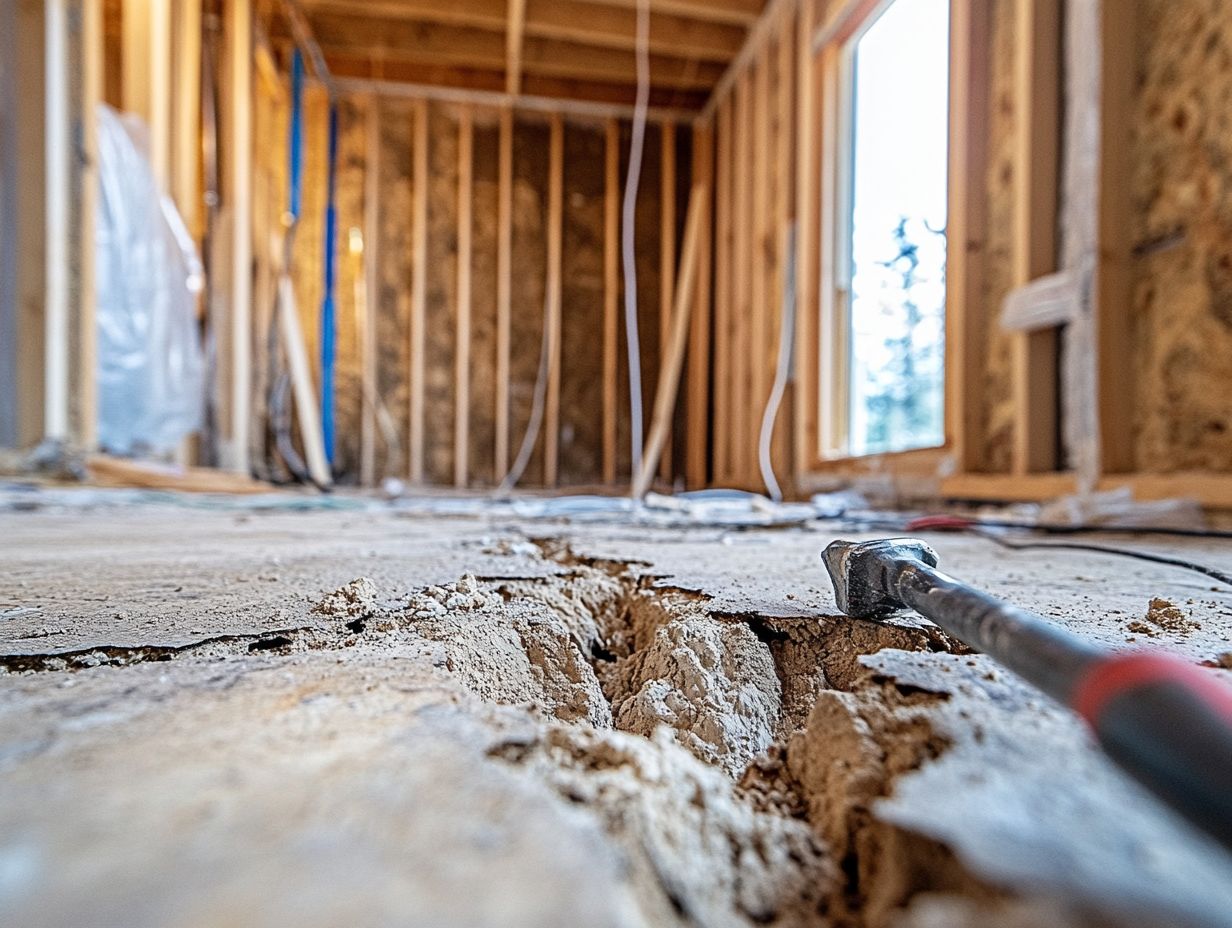
Home buyers have options for fixing issues found during inspections. You can request repairs before closing or hire specialists for urgent fixes.
As you review the findings, think carefully about your choices. A good strategy is to negotiate with the seller for specific repairs.
Getting estimates from contractors helps you make informed decisions. This knowledge empowers you during negotiations.
Clear communication with the seller fosters collaboration. It makes reaching mutually beneficial solutions easier.
Preventing Issues in New Builds
Preventing issues in new builds is vital for long-term satisfaction. You can do this by choosing a reliable builder and scheduling regular inspections.
Tips for Choosing a Reliable Builder
Finding a trustworthy builder is essential for new home buyers. It reduces the risk of future construction problems.
As you start your home buying journey, research your options carefully. Customer reviews can provide valuable insights into builders’ reliability.
Check the builder’s credentials by verifying licenses and insurance. Speaking with past clients can also help assess quality.
Choosing a dependable builder ensures great workmanship and boosts your home s long-term value and safety.
Importance of Regular Inspections During Construction
Regular inspections during the construction phase are vital for catching potential defects early on. This prevents maintenance issues from cropping up once your home is completed.
By adopting a systematic approach to evaluations, you significantly enhance the overall quality of your home. Inspections at various stages help you identify problems like improper framing, inadequate waterproofing, and non-compliance with local safety rules.
If these issues go unchecked, they may lead to costly repairs later. Inspections give you the chance to ensure that the materials and techniques used meet necessary standards, contributing to the longevity and safety of your dwelling.
Thorough inspections also foster peace of mind during the building process. They help deliver a superior final product that stands the test of time.
Frequently Asked Questions
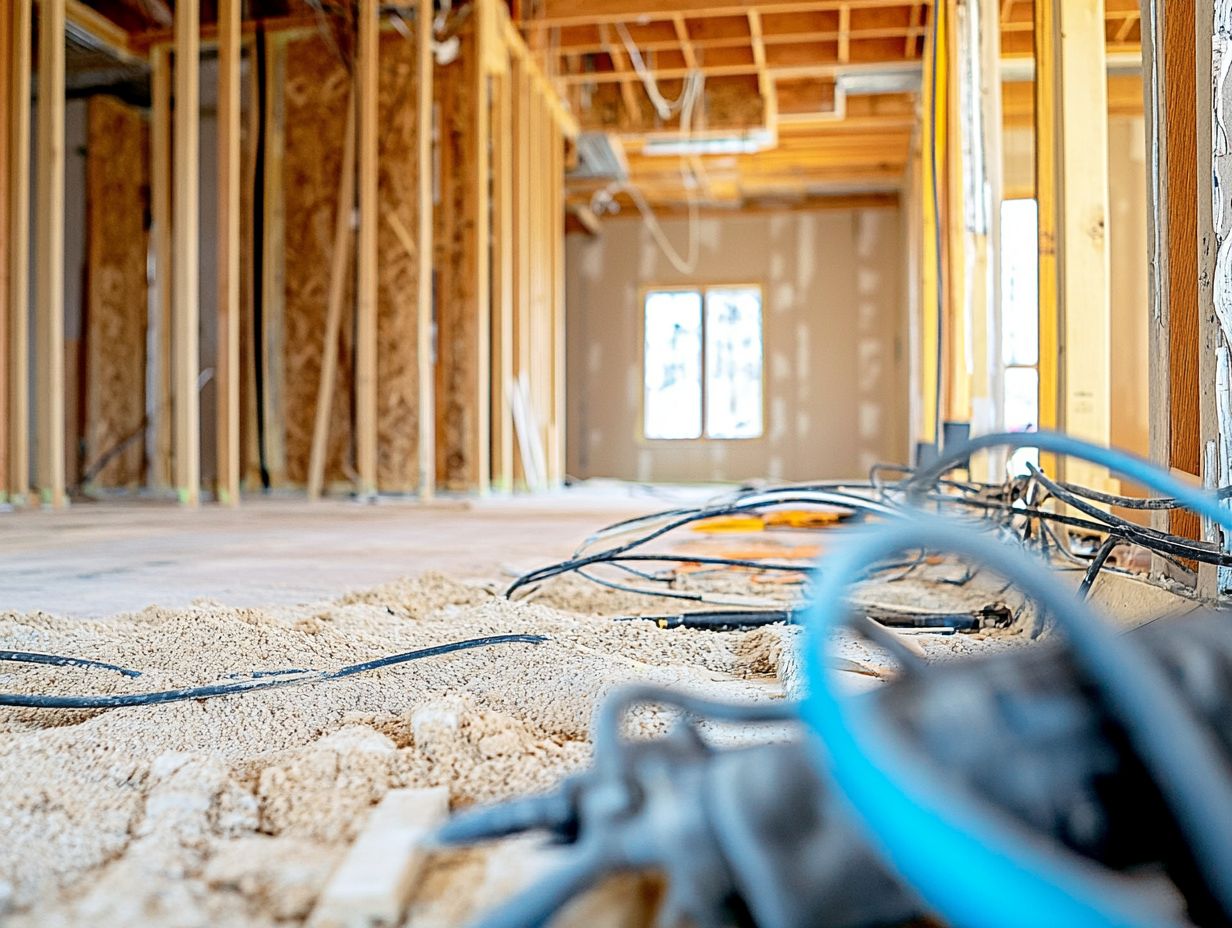
What are some common home inspection issues in new builds?
Common issues in new builds include building code violations, structural defects, poor construction quality, electrical and plumbing problems, and improper insulation. Understanding the role of home inspections in new construction can help address these concerns effectively.
How can building code violations affect a new build?
Building code violations can create safety hazards, cause structural damage, and lead to potential legal issues for both the builder and homeowner. It’s crucial that new builds meet code standards for your safety and peace of mind!
What are some potential structural defects to look out for in a new build?
Potential structural defects may include foundation issues, roofing problems, and inadequate support beams. These issues may cause structural instability and costly repairs in the future.
What should I do if my home inspection reveals poor construction quality?
If your home inspection uncovers poor construction quality, first discuss the issues with the builder and request fixes for any defects. If the builder is unresponsive or uncooperative, you may need to seek legal action or hire a contractor to address the issues.
How can electrical and plumbing issues be identified during a home inspection?
During a home inspection, the inspector thoroughly checks the electrical and plumbing systems for issues. This includes testing outlets, checking for water leaks, and inspecting the main electrical panel and plumbing pipes.
Why is proper insulation important in a new build?
Proper insulation is key in a new build because it helps regulate temperature and energy efficiency. Improper insulation can lead to higher energy bills, moisture and mold issues, and discomfort for occupants.
Don’t wait schedule your home inspection today to avoid these common pitfalls!

